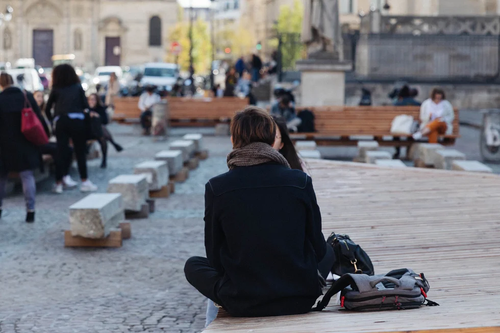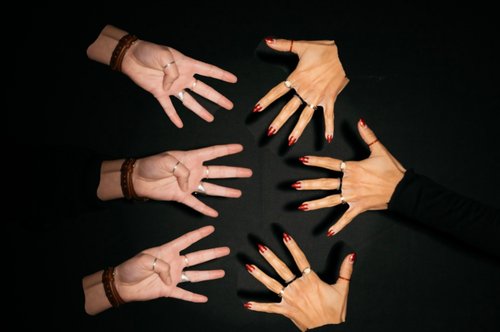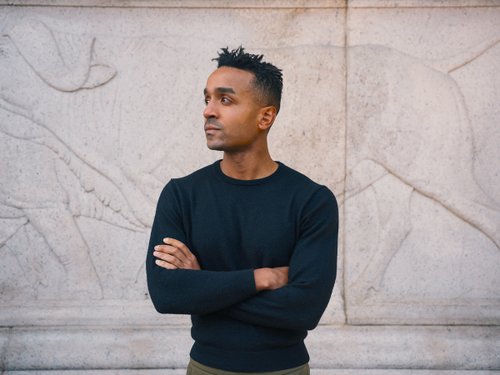Philosophise work: what if we declared the end of work?
May 11, 2021
3 mins


Thanks to automation, computerization, and outsourcing, there is more and more talk about the end of work. Will work, which now occupies a huge part of our lives, take up less space and time? What else would we do? Perhaps one day the era of the 9-5 will be seen as a relic of the Dark Ages when a large part of humanity spent its life just trying to survive. So will we ever see the end of work?
Two researchers sparked this debate in 1995 thanks to their books: American economist Jeremy Rifkin with The End of Work and French sociologist and philosopher Dominique Méda with Le travail, Une valeur en voie de Disparition? (Work, a Disappearing Value?). For them, the need to work is decreasing in developed countries thanks to mechanization and the relocation of aspects of agriculture and industry. So people are looking for work in the service industry, as bike couriers, in the tech sector, or as freelancers in creative or professional fields––but the need to work is not unlimited. More and more artificial services are being invented as new unexplored markets are being discovered. With Deliveroo, dog-walking, and online gaming apps, for example, is there really a need to invent new products?
Méda suggests reducing the overall amount of time worked in order to spread it out better and to avoid having some people working long hours while others have no work at all. This way there could be fewer pizza delivery people, but more healthcare staff. She also suggests re-evaluating our leisure, charitable and political activities, in order to make it socially acceptable to do something other than a job.
“Planting gardens in your neighborhood, talking about what you’ve seen on YouTube, cooking, playing music, spending time with loved ones, all this can also make you feel fulfilled in a less stressful way than work can because your survival does not depend on it.”
- Dominique Méda
Some sociologists, such as Dominique Schnapper, and philosophers, such as Frank Fischbach, respond with the fact that, for example, the French still love to work: it is the second most important value after family. And this feeling is more important than in any other European country. Despite automation, work is not disappearing and workers continue to project their expectations, hopes, and plans onto it. Although it is increasingly flexible, precarious, and individualized, work remains the main activity of individuals, through which they obtain their income as well as their social benefits. For Fischbach and Schnapper, there is an urgent need to improve working conditions. Despite this, they don’t question the existence of bullshit jobs and all the products people consume that they don’t actually need.
Organizing society differently
In this true philosophical “battle”, Méda responds that what workers get from their work, such as fulfillment, pride, and a feeling of usefulness, could be satisfied in other ways. You can feel useful through volunteer work, political engagement or leisure activities. Creating a garden in your neighborhood, talking about what you’ve seen on YouTube, cooking, playing music, spending time with loved ones––all of this can make you feel fulfilled in a less stressful way than work can because your survival does not depend on it. In short, if your expectations can be met in a way other than through work, and if work is needed less than it was a century ago, society could perhaps be organized differently.
Advocates of the end of work say that it will not disappear on its own automatically, but that this is the right moment to transform society, by reducing the number of hours worked, and the production and consumption of certain services and “artificial” goods. They presuppose that some jobs are superfluous and could be replaced by automation and computerization, or even abolished if they are deemed socially useless or even harmful to humans and the environment. You know, like advertising.
There is also a need to transform social protection so that you are not required to find just any job, even the most bullshit job, to survive. Work, in the form of a job that provides income and benefits, has not always had this central social role and production could be organized differently to come up with other ways of living and interacting with one another. This could be an opportunity to produce less, work less and consume less so as to live better and save the planet by wasting fewer resources. So, are you in?
This article is from the first episode of our French series that looks at work through a philosophical lens, Philo Boulot. It was written and produced in partnership with the YouTube channel, META.
Translated by Kalin Linsberg
Photo: Welcome to the Jungle
Follow Welcome to the Jungle on Facebook, LinkedIn, and Instagram, and subscribe to our newsletter to get our latest articles every day!

More inspiration: Céline Marty
Researcher on the philosophy of work.

With a universal income, will we stop working?
Universal income is gaining traction in Europe, but questions about essential jobs remain…
Dec 21, 2022

Taylorism revisited: Why we’re obsessed with work performance
Our focus on work productivity dates back to the 19th century, but is it truly connected to performance, and how does it affect our wellbeing?
Jul 11, 2022

How auto unions are advancing the idea of a shorter working week for all
As support for the 4-day workweek keeps gaining steam, the industry that ushered in the 5-day workweek is still at the forefront
Nov 27, 2023

“Many American workers and families break even at best.”
An economics reporter breaks down the complex landscape of today's economy.
Nov 23, 2023

When your workplace is literally toxic — but you’re a kid
In the US, caustic chemicals, scalding appliances, and dangerous machinery are all in a day’s work for a growing body of exploited children.
Nov 07, 2023
The newsletter that does the job
Want to keep up with the latest articles? Twice a week you can receive stories, jobs, and tips in your inbox.

Looking for your next job?
Over 200,000 people have found a job with Welcome to the Jungle.
Explore jobs